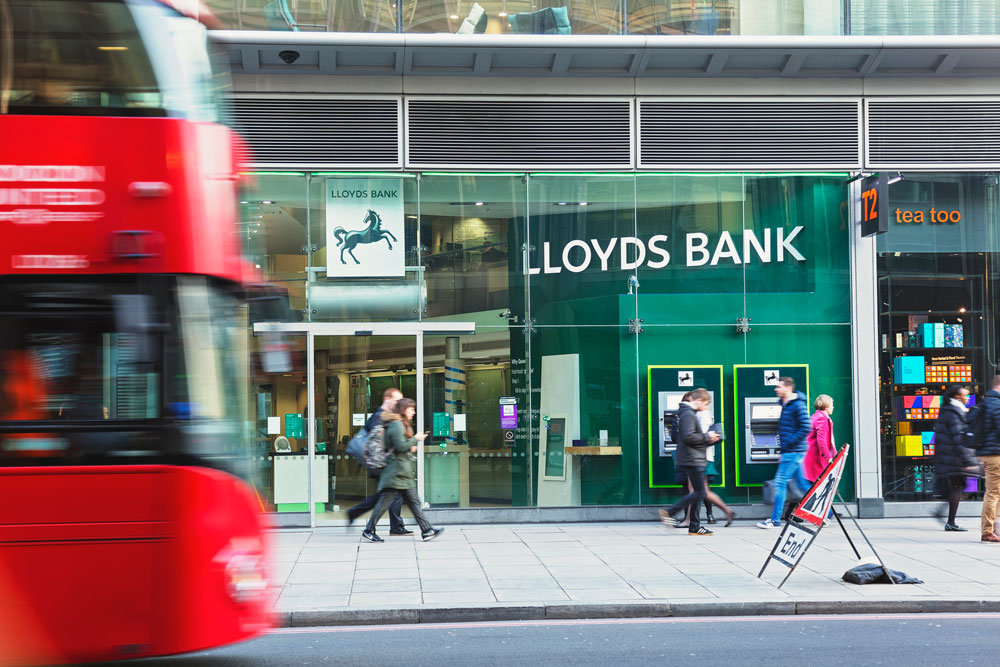Here's why Lloyds Bank is confident after these results
29th July 2021 08:27
by Richard Hunter from interactive investor
Its shares have doubled since September last year, and management is increasingly optimistic about the future.

Lloyds Banking Group (LSE:LLOY) is riding the wave of generally improving conditions, upping its guidance for the year, with further bad loan releases boosting its numbers.
The impairment release of provisions for the half-year totals £656 million, as compared to a charge of £3.8 billion at the height of the pandemic when an economic meltdown was a possibility. The bank remains conservative on the outlook for the latter part of the year for conditions in the UK, as government support subsides and a likely spike in unemployment follows.
Even so, the remainder of the bank’s provisions should prove ample for these projections and, in the meantime, the releases made have boosted second-quarter pre-tax profit to £2 billion, higher than the expected £1.2 billion. That brings the half-year number to £3.9 billion, as compared to a loss of £602 million in the corresponding period last year.
- Has the tide turned for the big UK bank stocks?
- Barclays shares rally after it kicks off bank results season
- Six US bank stocks: buy, hold, or sell?
- Subscribe to the ii YouTube channel and catch all our latest interviews and video content
Given the current level of interest rates, pressure still remains on the traditional and profitable “positive jaws” between deposits and loans, although the Net Interest Margin of 2.5% is stable. Net income improved by 2% following a strong performance from mortgages, and despite another spike in customer deposits of £24 billion in the period.
The capital cushion of 16.7% is another indication of financial strength and comfortably exceeds both the bank’s own target of around 12.5% and the regulatory minimum of 11%. Meanwhile, the continued focus on costs has enabled the cost/income ratio to remain the lowest in the sector at 54.9%, even though continued investment in the business has seen the figure nudge higher from a previous 52.3%.
The robust position has also enabled Lloyds to announce a dividend that implies a yield of around 1.4%, which remains extremely low by historical standards. Nonetheless, it is part of a new and possibly rebased progressive dividend policy which may yet see significant growth from here.
The group is also continuing to ratchet up its digital capabilities which will drive longer-term cost efficiencies, while its £390 million acquisition of Embark Group as announced today will further shore up its retirement and pensions proposition, adding £35 billion of assets under administration to sit within its Scottish Widows arm.
Less positively, a faltering recovery in the UK over the coming months could put pressure on UK banks generally, and Lloyds specifically will be keeping an eye on its key metrics, particularly the cost/income ratio. Meanwhile, a charge of £425 million for remediation is a reminder that legal and particularly legacy issues are a constant threat reputationally and financially.
- 10 blue-chip shares for contrarian investors
- The Week Ahead: UK banks, Lloyds, Glaxo, Shell, BT, US tech
- Top 20 most-bought UK shares in Q2 2021
- Take control of your retirement planning with our award-winning, low-cost Self-Invested Personal Pension (SIPP)
Overall, however, Lloyds has demonstrated again that it has a firm hand on the tiller and is well capitalised to weather any immediate storms. The share price performance over the last year has mirrored its actions during improving macro conditions, with a surge of 60% comparing to a rise of 14.5% for the wider FTSE100 index. As such, there should be little to threaten a market consensus which currently stands at a 'buy'.
These articles are provided for information purposes only. Occasionally, an opinion about whether to buy or sell a specific investment may be provided by third parties. The content is not intended to be a personal recommendation to buy or sell any financial instrument or product, or to adopt any investment strategy as it is not provided based on an assessment of your investing knowledge and experience, your financial situation or your investment objectives. The value of your investments, and the income derived from them, may go down as well as up. You may not get back all the money that you invest. The investments referred to in this article may not be suitable for all investors, and if in doubt, an investor should seek advice from a qualified investment adviser.
Full performance can be found on the company or index summary page on the interactive investor website. Simply click on the company's or index name highlighted in the article.